The end of the COVID-19 global health emergency does not mean leaving the epidemic unattended but shows that hazards caused by the epidemic can be effectively controlled with current capabilities, and relevant prevention and control work should be continued, officials from China's National Health Commission (NHC) said during a press conference on Monday, where they emphasized prevention and control work in the post-COVID era.
The World Health Organization (WHO) on Friday lifted the Public Health Emergency of International Concern (PHEIC) for COVID-19, marking a symbolic end to the pandemic, which has taken 6.9 million lives and caused 765 million infections around the world since the agency first declared the coronavirus to be an international crisis on January 30, 2020.
The WHO's decision was made based on four factors - the downward epidemic situation, the stable characteristics of the virus' pathogenicity and mutation, the population's immune barrier established by natural infection and active vaccination, and systematic response capacities with strengthened medical treatment capacities and vaccines and medicines, Liang Wannian, head of China's COVID-19 response experts' team, said during the Monday press briefing.
A PHEIC creates an agreement among countries to abide by the WHO's recommendations for managing the emergency and each country uses its own public health emergency to gather resources and waive rules in order to ease a crisis. The end of the PHEIC means global emergency response measures including policies that hinder international travel can be lifted.
China optimized its management of COVID-19 at the end of 2022. The latest decision by the WHO will further reduce or eliminate restrictions on cross-border transportation and further benefit China's exchanges with the world in term of trade, tourism and academic exchanges, and reduce the inconvenience caused by some epidemic prevention and control measures, Liang said.
It is also beneficial for social and economic development, which will leave China with more energy and time to develop its economy and improve Chinese people's livelihoods, Liang said.
Liang noted that the latest move does not mean that China will leave the COVID-19 epidemic alone but will work closely with other countries around the world to take more targeted, effective and cost-effective measures to control the epidemic and protect the public's health.
Discussions of COVID-19 re-infections were popular online recently as some netizens suffered from COVID-like symptoms after the May Day holidays, during which large gatherings and mass movements increased the risks of getting the coronavirus. Officials said that the virus has kept mutating, and sporadic cases have been reported across the country with the harm of the disease still existing.
However, influenced by exchanges between China and the world, the current major prevalent strain in China has become the XBB variants, which have stronger transmissibility and immune escape ability than the earlier prevalent Omicron variants, but with no significant change in their pathogenicity, Chen Cao, researcher from the Chinese Center for Disease Control and Prevention (Chinese CDC) said during the Monday briefing.
According to Chen, the monitoring data show that the XBB variants accounted for 97.5 percent of the imported cases in late April this year, which is basically consistent with the global proportion of XBB variants. In local cases, the proportion of XBB variants has increased significantly from 0.2 percent in mid-February to 74.4 percent in late April this year, becoming the major prevalent strain of COVID-19 in China.
Experts said that China will keep monitoring COVID-19 infections and the mutation of the coronavirus, with the multi-channel monitoring and early warning system that has already been established in the country.
The Chinese Foreign Ministry said during a regular press conference on Monday that COVID-19 is a common enemy of human society and the WHO's declaration signifies an important victory in the global fight against the virus.
The Chinese government has always put people's lives and health first, adhered to the principle of science-based and precise measures, and optimized and adjusted epidemic prevention and control measures according to the situation in the process of fighting COVID-19, Chinese Foreign Ministry spokesperson Wang Wenbin said during the press briefing.
It has not only maximally protected the lives and health of Chinese people but also become a major source of anti-epidemic supplies and key player in international cooperation against the pandemic by taking the initiative in making COVID-19 vaccines a global public good, supporting the exemption of intellectual property rights for vaccine research and development, initiating cooperation in vaccine production with developing countries, dispatching medical expert teams to other countries, and initiating joint global origins-tracing of the virus with the WHO, Wang said.








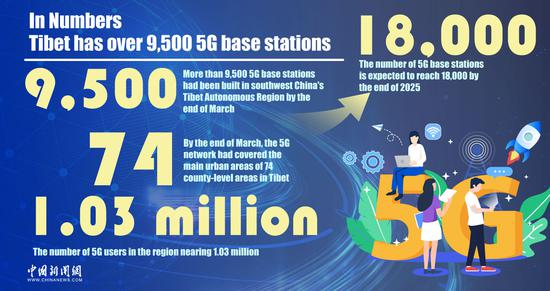

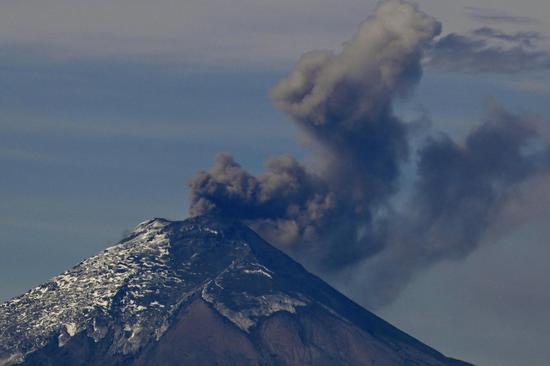


















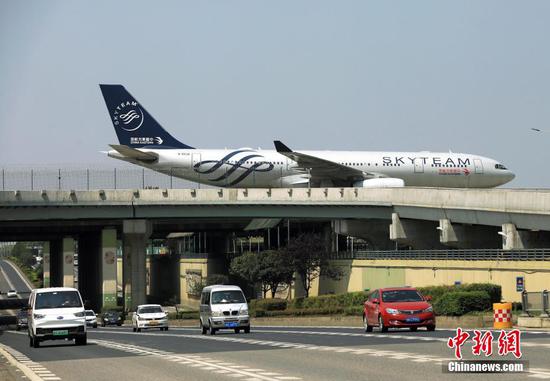



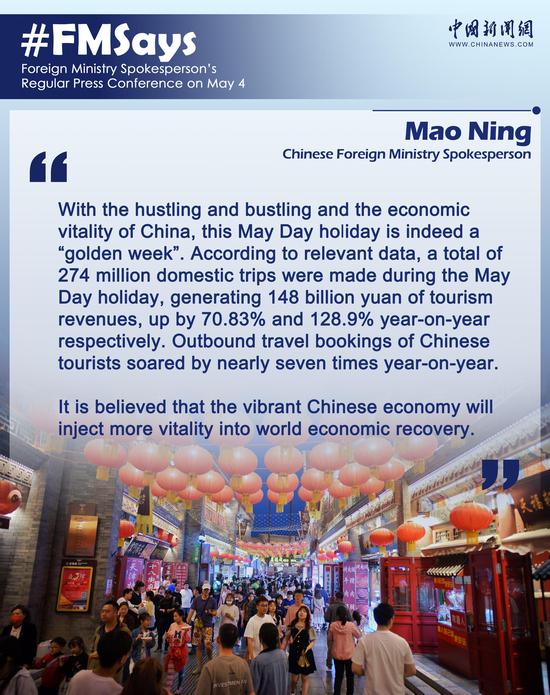





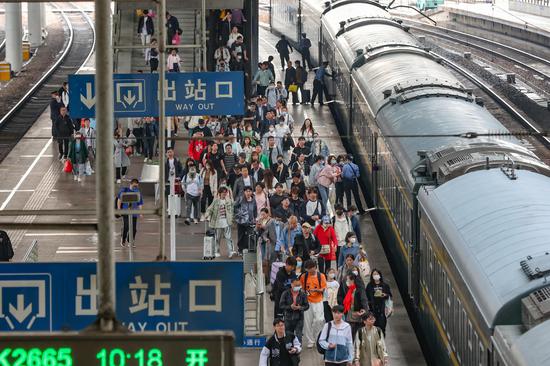

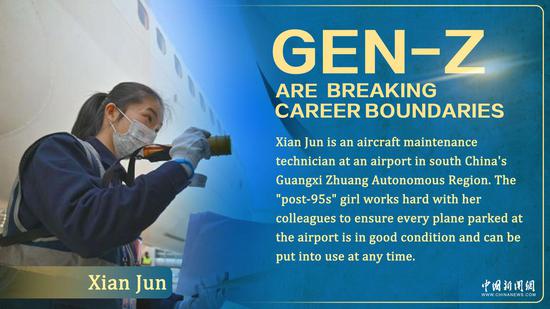








 京公网安备 11010202009201号
京公网安备 11010202009201号